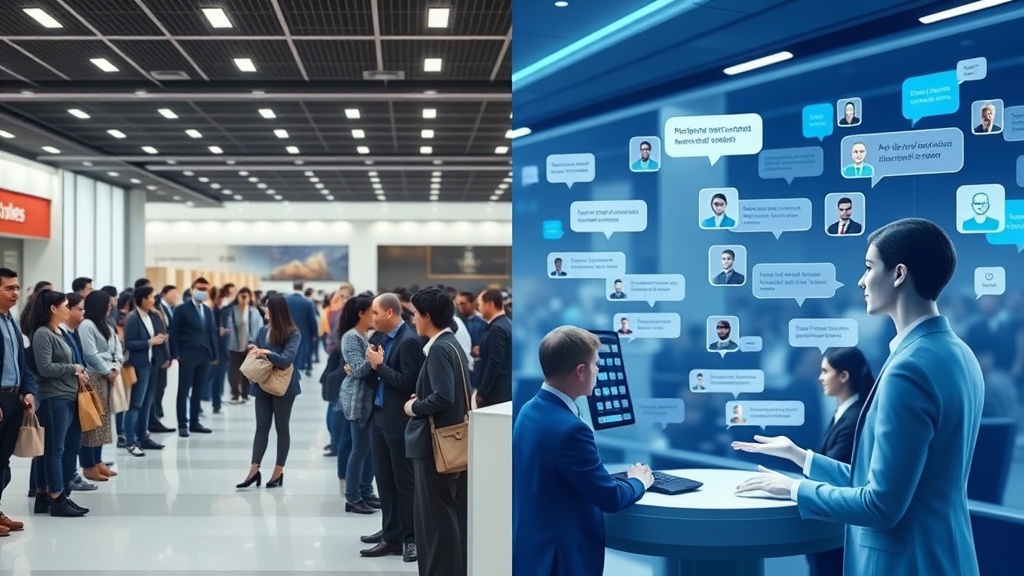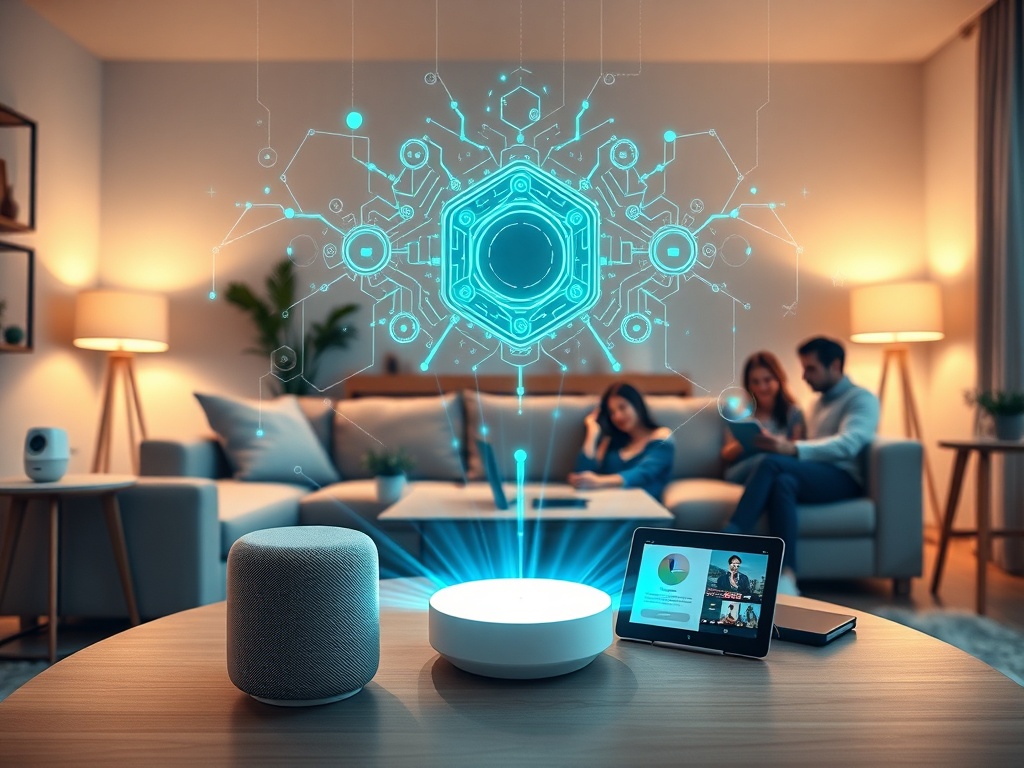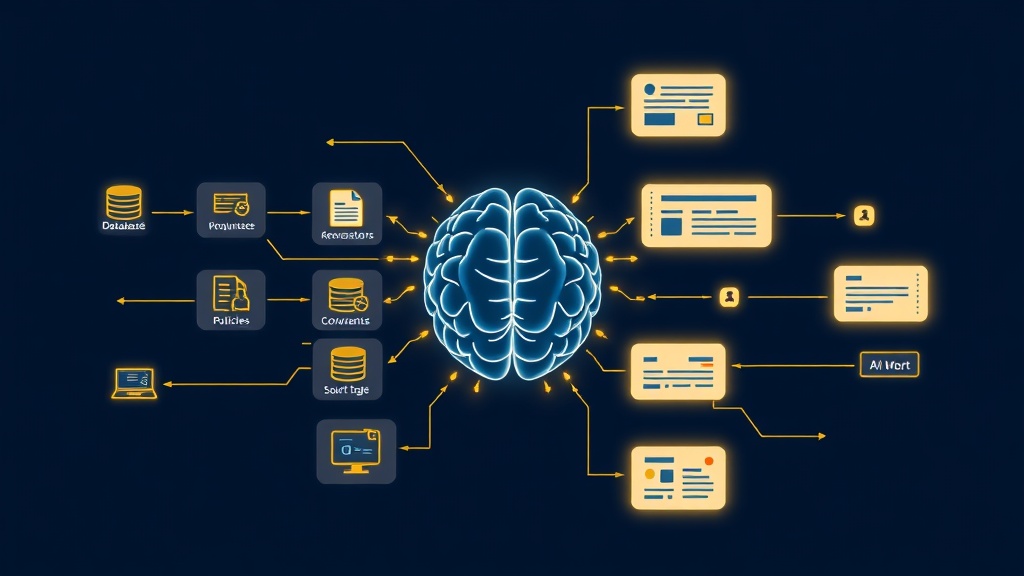
El Nuevo Estándar: Por Qué el 73% de los Clientes Prefieren Interacciones con IA
Investigación de MIT y Capgemini revela que el 73% de los consumidores prefieren negocios que usan IA avanzada, con el 80% de las interacciones con clientes ahora gestionadas por IA. Descubre por qué la IA inteligente se ha convertido en el estándar de oro para la experiencia del cliente y cómo las empresas están respondiendo a estas expectativas en evolución.
Las estadísticas son innegables: según investigación pionera del MIT y datos recientes de Capgemini, el 73% de los consumidores ahora prefieren activamente hacer negocios con empresas que aprovechan IA avanzada y soluciones digitales en sus procesos. Esta no es solo una preferencia marginal—es un cambio fundamental en las expectativas de los clientes que está redefiniendo todo el panorama del engagement con el cliente.
El Punto de Inflexión: Cómo la IA se Convirtió en la Opción Preferida
Hemos alcanzado un momento decisivo en la evolución del servicio al cliente. El último análisis de Gartner confirma que a partir de 2025, el 80% de las interacciones con clientes ya están gestionadas por sistemas de IA. Esta adopción masiva no solo ha cambiado cómo operan las empresas—ha transformado fundamentalmente lo que los clientes esperan de cada interacción.
El cambio representa más que un avance tecnológico; es una reimaginación completa de la relación cliente-empresa. Cuando cuatro de cada cinco interacciones están impulsadas por IA, lo excepcional se convierte en lo esperado. El estándar de excelencia en el servicio se ha elevado permanentemente.
Entendiendo el 73%: Qué Impulsa la Preferencia del Cliente
La preferencia por interacciones con IA proviene de tres ventajas fundamentales que los modelos de servicio tradicionales luchan por igualar: personalización avanzada, tiempos de respuesta instantáneos y disponibilidad constante. Estas no son solo características deseables—se han convertido en requisitos fundamentales para los consumidores modernos.
La investigación muestra que entre el 62% y el 74% de los clientes prefieren específicamente usar chatbots para consultas rápidas y resolución de problemas sencillos. Esta preferencia no se trata de evitar el contacto humano; se trata de obtener respuestas inmediatas y precisas sin fricción ni demoras.
La eliminación de tiempos de espera se destaca como uno de los factores más significativos. Los modelos de servicio tradicionales, limitados por disponibilidad y capacidad humana, simplemente no pueden competir con la capacidad de la IA de manejar miles de conversaciones simultáneas sin tiempos de cola ni música de espera.
La Revolución de la Personalización: Cada Interacción a Medida
La hiperpersonalización ha surgido como un factor decisivo en la preferencia del cliente. Según datos actuales, el 61% de los consumidores esperan que las interacciones con IA se adapten específicamente a sus preferencias y contexto. Esto no se trata de respuestas genéricas basadas en plantillas—se trata de crear experiencias genuinamente individualizadas a escala.
Los sistemas modernos de IA recuerdan interacciones anteriores, comprenden el historial del cliente y adaptan su estilo de comunicación para coincidir con preferencias individuales. Cuando un cliente contacta con soporte, la IA ya conoce su historial de compras, problemas anteriores y estilo de comunicación preferido. Este nivel de personalización crea relaciones de marca más profundas y satisfactorias que eran previamente imposibles de lograr a escala.
La tecnología va más allá del simple recuerdo de datos. Los sistemas avanzados de IA analizan patrones a través de millones de interacciones para predecir necesidades, anticipar preguntas y ofrecer soluciones proactivamente antes de que los problemas escalen. Esta capacidad predictiva transforma el soporte reactivo en engagement proactivo.
La Emergencia de la Empatía Artificial
Quizás el desarrollo más fascinante es la evolución de la "empatía artificial". La investigación indica que el 64% de los consumidores confiarían más en agentes de IA si demostraran atributos similares a los humanos como empatía y calidez. Esto ha impulsado una innovación significativa en IA emocional y análisis de sentimiento.
Los sistemas modernos de IA ahora pueden identificar señales emocionales en texto y voz, adaptando sus respuestas en consecuencia. Un cliente frustrado recibe un tono y enfoque diferente al de uno confundido. Esta inteligencia emocional, una vez considerada exclusiva de agentes humanos, ahora está siendo replicada con éxito e incluso mejorada a través de la IA.
El concepto de empatía artificial representa la siguiente evolución en el desarrollo de IA. Estos sistemas no solo procesan información—reconocen estados emocionales y responden con sensibilidad apropiada. Esta capacidad está transformando la IA de una herramienta a un verdadero compañero de interacción.
El Impacto Empresarial: Cumpliendo el Nuevo Estándar
La respuesta corporativa a estas preferencias cambiantes ha sido rápida y decisiva. Los datos actuales muestran que más del 45% de los equipos de soporte ya utilizan IA, con el 70% de los líderes empresariales planeando aumentar sus inversiones en IA específicamente para mejorar la experiencia del cliente.
Estas inversiones están produciendo resultados medibles. Un impresionante 87% de los usuarios califican su experiencia con chatbots y asistentes inteligentes como neutral o positiva, con el 96% de los consumidores ahora familiarizados con esta tecnología. Esta aceptación y satisfacción generalizada demuestran que la IA ha pasado de tecnología experimental a infraestructura empresarial esencial.
Las empresas que lideran esta transformación no solo están implementando IA—están reimaginando toda su estrategia de experiencia del cliente alrededor de estas capacidades. Entienden que cumplir con el nuevo estándar de oro requiere más que añadir un chatbot a su sitio web; demanda un replanteamiento fundamental de cómo se construyen y mantienen las relaciones con los clientes.
La Ventaja 24/7: Siempre Abierto, Siempre Listo
La capacidad de proporcionar servicio las 24 horas sin degradación en calidad o entusiasmo representa un cambio de paradigma en accesibilidad. La IA no experimenta fatiga, no necesita descansos y mantiene un rendimiento consistente ya sea manejando la primera interacción del día o la milésima.
Esta disponibilidad constante resuena particularmente con empresas globales que atienden clientes en diferentes zonas horarias. El modelo tradicional de horarios comerciales se vuelve irrelevante cuando la IA puede proporcionar capacidades de servicio completas en cualquier momento. Los clientes en Tokio reciben el mismo servicio inmediato y de alta calidad que aquellos en Nueva York o Londres, independientemente de cuándo contacten.
La Ecuación de Escala: Personalización Encuentra Mercado Masivo
El servicio al cliente tradicional enfrentaba una ecuación imposible: proporcionar servicio personalizado y de alta calidad a millones de clientes sin escalar costos proporcionalmente. La IA ha resuelto esta ecuación entregando experiencias individualizadas a escala virtualmente ilimitada.
Cada interacción se beneficia del aprendizaje colectivo de millones de conversaciones anteriores, sin embargo, permanece adaptada únicamente al cliente individual. Esta combinación de inteligencia amplia y atención personal crea un nivel de servicio que sería económicamente imposible con agentes humanos solos.
Mirando Hacia Adelante: La Aceleración de las Expectativas
A medida que las capacidades de IA continúan expandiéndose, las expectativas de los clientes evolucionan en paralelo. La tasa de preferencia del 73% que vemos hoy probablemente crecerá a medida que las generaciones más jóvenes y nativas digitales se conviertan en la fuerza consumidora dominante. Estos consumidores no solo aceptan las interacciones con IA—las buscan activamente.
Las implicaciones para las empresas son claras: la interacción con clientes impulsada por IA ya no es una ventaja competitiva—es una necesidad competitiva. Las empresas que no cumplan con este nuevo estándar de oro arriesgan no solo la insatisfacción del cliente, sino la irrelevancia en un mercado que prioriza la IA.
Únete a la Revolución del 73%
Tus clientes ya prefieren interacciones impulsadas por IA—los datos lo prueban. En txat by gako.ai, construye IA conversacional sofisticada en minutos con nuestra plataforma intuitiva y tecnología RAG avanzada.
¿Listo para cumplir con el nuevo estándar de oro? Comienza tu prueba gratuita en txat hoy. Sin complejidad de configuración, solo acceso inmediato a la IA que tus clientes ya están esperando.


